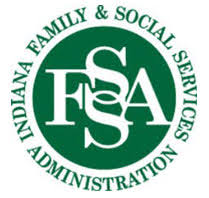
INDIANA – Indiana’s ranking of how well it delivers care for older adults and people with disabilities, as well as supports their caregivers, has improved markedly over the last three years, according to a national review.
The AARP Scorecard ranks Indiana 27th in the country, up from 44th in 2020. This score considers the state’s performance across five key areas: affordability and access, choice of setting and provider, safety and quality, support for family caregivers, and community integration.

“This ranking is demonstrative of broad improvements the state has made in serving some of our most vulnerable residents and their families,” FSSA Secretary Dan Rusyniak, M.D. said. “All credit goes to our partners across the state, including providers, care managers, and advocates, who collaborate with us daily to provide the best support for Indiana’s growing aging population, whether they are at home, receiving services in the community, or living in a facility.”
“We will continue to work with these key stakeholders, and in partnership with the Indiana General Assembly and Gov. Eric J. Holcomb, to build on these improvements as we identify opportunities to better provide long-term services and support to Hoosiers as they age,” Rusyniak said.
The scorecard noted an innovative Indiana Medicaid initiative that allows the state to speed up the time it takes for individuals to qualify for home and community-based services – a process called presumptive eligibility. Additionally, the scorecard ranks Indiana 5th in the nation for community integration, which examines the employment rate for people with disabilities, livability indexes regarding transportation and housing, and age-friendly health systems.
“We will remain keenly focused on our ongoing efforts to better serve Hoosiers, such as our Indiana PathWays for Aging program that launches in 2024, in lockstep with our critical partners who are committed to this work,” Rusyniak said.
The scorecard can be found here.



